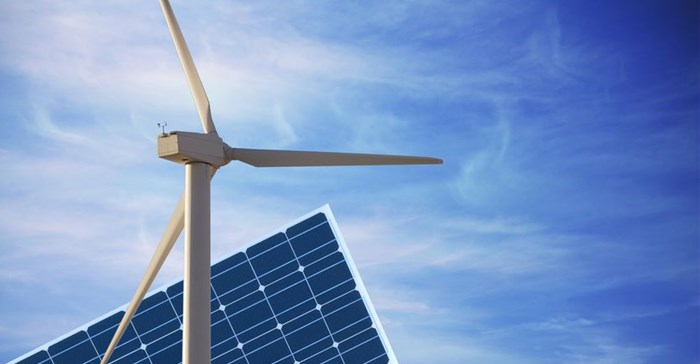Government says it remains committed to expanding the availability of renewable power to enhance the country's energy mix.
This will ensure that South Africa significantly contributes to the global effort for a low-carbon and climate resilient world.
In a statement, following the Cabinet meeting, the executive said they will ensure a responsible and just transition to a cleaner future.
“Renewable energy and energy storage technologies enable us to convert electrical power into an energy form and store it for later use when needed.
“Energy storage systems reduce the need for back-up capacity from coal or gas-fired electrical generation plants, thereby reducing power sector emissions and help us mitigate climate change,” it said.
Renewable power from independent producers currently accounts for 3.8GW, less than 5% of the energy sold to consumers.
“Energy is a key enabler in South Africa’s trajectory towards socio-economic growth and development. The National Development Plan (NDP) states that South Africa needs at least 20,000MW of renewable energy by 2030,” Cabinet said.
Within eight years, the Renewable Energy Independent Power Producer Procurement Programme (REIPPP) has attracted R209.4bn in committed private sector investment, resulting in much-needed alleviation of fiscal pressure.
The renewable IPPs have created 38,701 job years for youth and women from their surrounding communities.
With regards to the environment, the REIPPP’s contribution has meant that South Africa’s carbon emission is reduced by about 33.2-million tonnes (Mton) of carbon dioxide and water savings of 39.2-million kilolitres achieved by 31 December 2018.
Eskom
Cabinet also received a report from Deputy President David Mabuza into the state of affairs at Eskom.
Mabuza convenes a special Cabinet committee on Eskom, which includes the ministers of public enterprises, energy, transport, finance, police and state security.
It was established in response to recent electricity supply disruptions and the negative impact on the economy.
“Government’s coordinated efforts to bring financial, operational and structural sustainability to Eskom are proceeding in earnest,” the statement said.
In line with President Cyril Ramaphosa’s commitment that government’s response to the electricity crisis must be inclusive and consultative, the minister of public enterprises and the Eskom board chairperson had their first preliminary engagements with the leadership of the three labour unions recognised by Eskom, the coal mining industry and the engineering fraternity.
The meeting with labour reported on the problems with Eskom’s operations and generation system, maintenance and unplanned outages.
“The meeting sought to establish a basis for formal future consultations. The restructuring of Eskom was also discussed, and all parties agreed that there would be more interactions to better understand the roadmap and the implications of separating Eskom’s business divisions into three separate operating entities,” said the statement.
Coal
The coal mining industry, which was represented by the Minerals Council of South Africa (Mincosa), raised problems related to coal supply, costs and pricing, and the quality of coal provided to Eskom.
Further engagements were convened with the engineering fraternity, under the auspices of the Engineering Council of South Africa (ECSA).
Engineering
All engineering specialist disciplines were represented by their respective voluntary associations, including the National Association of Black Engineers.
The ECSA gave its analysis of the problems facing Eskom and provided a set of recommendations about how to involve the broader South African academic and technical professional fraternity in the urgent interventions required to stabilise electricity supply.
It was then agreed that Mincosa and the ECSA will assist government to establish a technical operations and maintenance review team for Eskom that will be announced shortly.
Mzimvubu Water Project
Meanwhile, Cabinet has welcomed the Mzimvubu Water Project’s advanced infrastructure at Esiqhungqwini village in Tsolo in the Eastern Cape.
Cabinet said this project is an example of how government continues to meet the needs of communities, despite South Africa being a water-stressed country.
“The realisation of such water projects create job opportunities and ensure potable water supply for domestic and industrial use.”
Since the advent of democracy, much work has been done to ensure that communities have access to basic services like clean water. Nearly 90% of households currently have access to piped water.















































